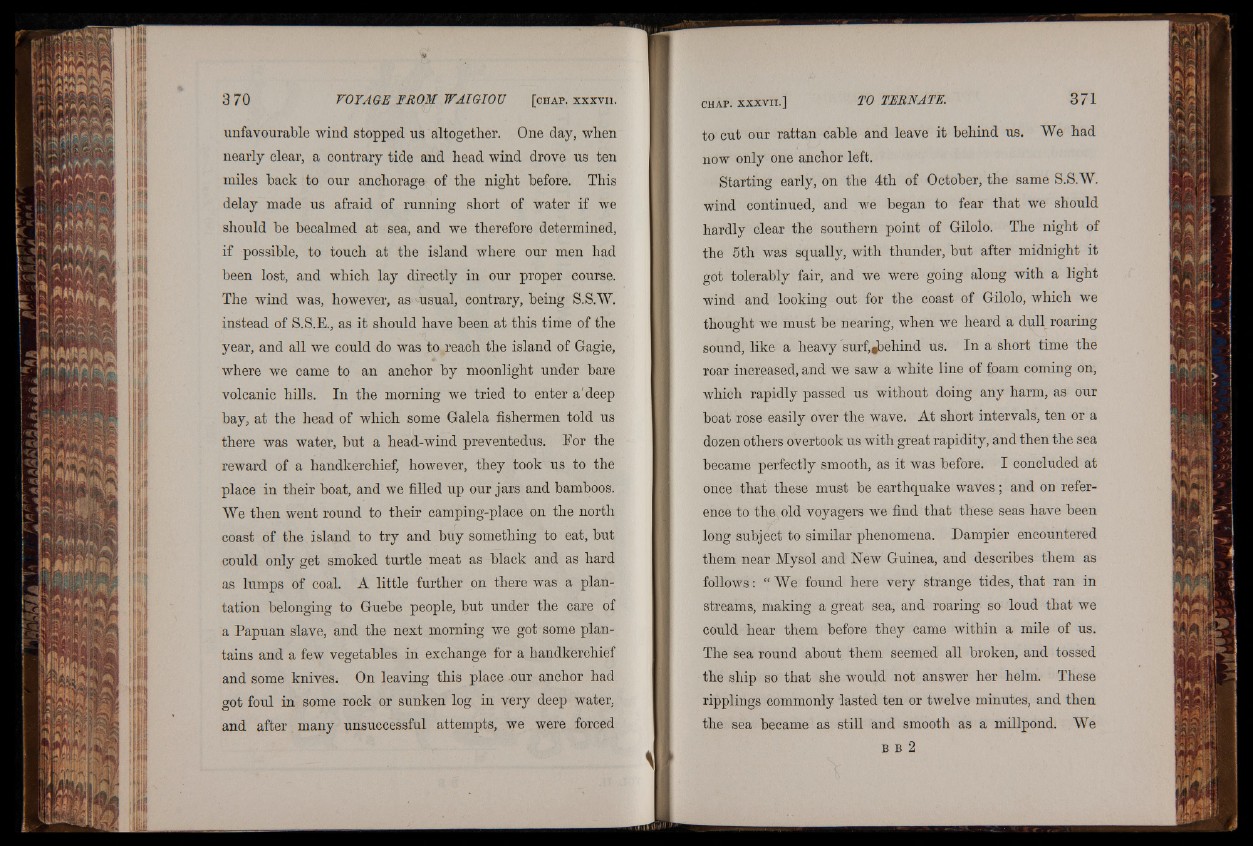
unfavourable wind stopped us altogether. One day, when
nearly clear, a contrary tide and head wind drove us ten
miles back to our anchorage of the night before. This
delay made us afraid of running short of water if we
should be becalmed at sea, and we therefore determined,
if possible, to touch at the island where our men had
been lost, and which lay directly in our proper course.
The wind was, however, as usual, contrary, being S.S.W.
instead of S.S.E., as it should have been at this time of the
year, and all we could do was to reach the island of Gagie,
where we came to an anchor by moonlight under bare
volcanic hills. In the morning we tried to enter a'deep
bay, at the head of which some Galela fishermen told us
there was water, but a head-wind preventedus. For the
reward of a handkerchief, however, they took us to the
place in their boat, and we filled up our jars and bamboos.
We then went round to their camping-place on the north
coast of the island to try and buy something to eat, but
could only get smoked turtle meat as black and as hard
as lumps of coal. A little further on there was a plantation
belonging to Guebe people, but under the care of
a Papuan slave, and the next morning we got some plantains
and a few vegetables in exchange for a handkerchief
and some knives. On leaving this place our anchor had
got foul in some rock or sunken log in very deep water,
and after many unsuccessful attempts, we were forced
to cut our rattan cable and leave it behind us. We had
now only one anchor left.
Starting early, on the 4th of October, the same S.S.W.
wind continued, and we began to fear that we should
hardly clear the southern point of Gilolo. The night of
the 5 th was squally, with thunder, but after midnight it
got tolerably fair, and we were going along with a light
wind and looking out for the coast of Gilolo, which we
thought we must be nearing, when we heard a dull roaring
sound, like a heavy surf^behind us. In a short time the
roar increased, and we saw a white line of foam coming on,
which rapidly passed us without doing any harm, as our
boat rose easily over the wave. At short intervals, ten or a
dozen others overtook us with great rapidity, and then the sea
became perfectly smooth, as it was before. I concluded at
once that these must be earthquake waves; and on reference
to the, old voyagers we find that these seas have been
long subject to similar phenomena. Dampier encountered
them near Mysol and New Guinea, and describes them as
follows: “We found here very strange tides, that ran in
streams, making a great sea, and roaring so loud that we
could hear them before they came within a mile of us.
The sea round about them seemed all broken, and tossed
the ship so that she would not answer her helm. These
ripplings commonly lasted ten or twelve minutes, and then
the sea became as still and smooth as a millpond. We
B B 2